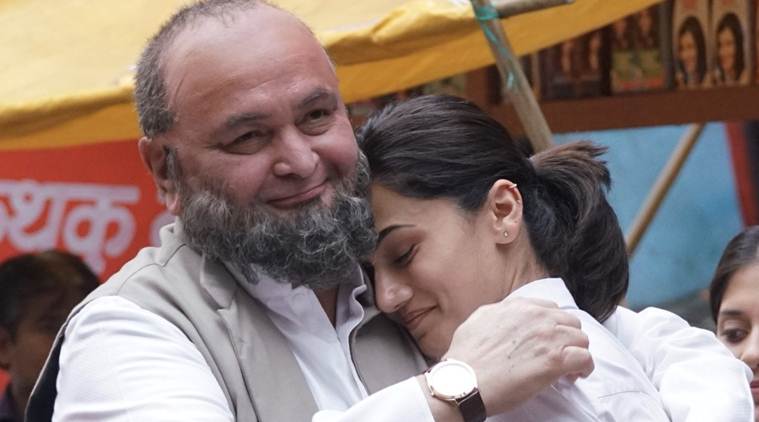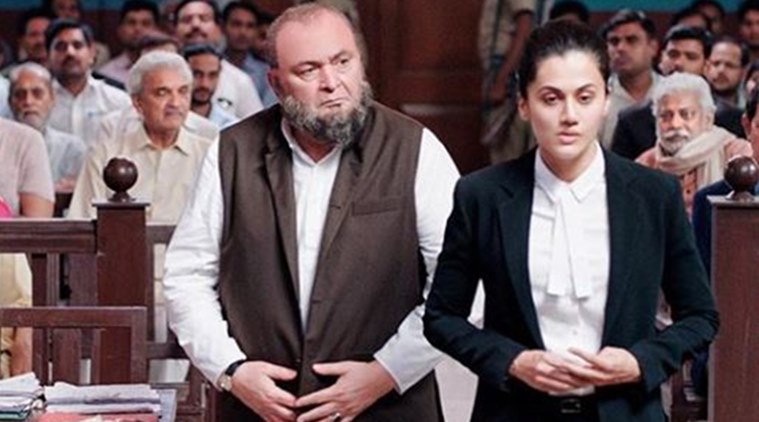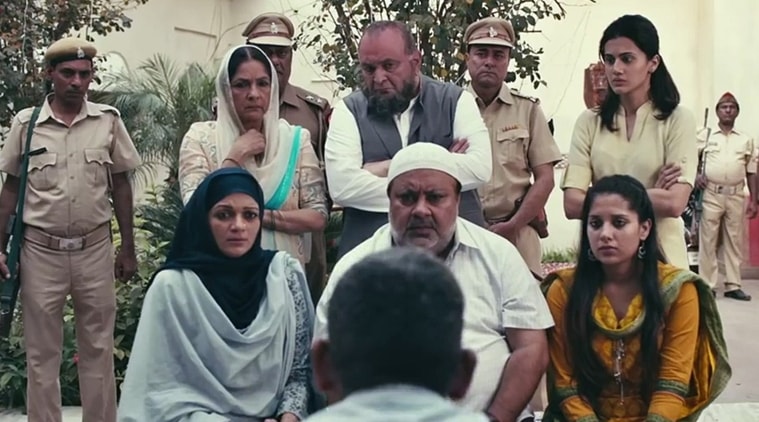 Mulk movie review: It has a solid cast, and each plays their part. Rishi Kapoor is stolid but effective.
Mulk movie review: It has a solid cast, and each plays their part. Rishi Kapoor is stolid but effective.
Mulk movie cast: Rishi Kapoor, Manoj Pahwa, Taapsee Pannu, Ashutosh Rana, Prateik Smit Babbar, Neena Gupta, Rajat Kapoor, Prachee Shah, Kumud Mishra
Mulk movie director: Anubhav Sinha
Mulk movie rating: Three and a half stars
We are now living in such tenuous, difficult polarized times that a film like Mulk feels like a blessing. It is about everything, really: the nation, religious divide, communal harmony (or, should I say, disharmony, which is spreading). It is about us as a people, and how we are grievously riven apart. It shows us a mirror, and that mirror is cracked, from side to side.
In Varanasi, there lives a Muslim family which has long enjoyed amicable relations with its neighbours: for decades, the members of the family have done ‘uthna, baithna’ with the Mishras and the Chaubeys. Murad Ali Mohammad (Rishi Kapoor) ferries ‘desi dawai’ and goodwill to his compatriots, and good-natured gossip and ‘chai’ follows. Everyone in the ‘mohalla’ is part of a celebration that is taking place in the Muslim household when the film opens.
Not everyone, actually. Soon, the fissures start coming out in the open: Murad Ali’s nephew Shahid (Babbar) is under the influence of an Islamic hard-liner, and has gone astray. Neither Murad’s wife (Gupta), nor Shahid’s father (Pahwa) and mother (Shah), nor his sister-in-law Arti (Pannu) have noticed his increasing alienation. This leads to an avoidable tragedy, and Murad and his family fetch up in court, everything at stake: ties with neighbourhood, community, ‘mulk’.
 Taapsee Pannu starts out tentative but grows into her part as she goes along, and has a terrific climactic turn.
Taapsee Pannu starts out tentative but grows into her part as she goes along, and has a terrific climactic turn.
The questions Mulk (please note, it could have been called ‘Des’ or ‘Desh’: the choice of title appears deliberate and apt) raises are not new. Ever since the ’47 Partition, the line that divided the subcontinent and split it into two on the basis of religion, has been a festering wound. In the last few years, it has become deeper and bloodier.
Sinha minces no words, and puts them all out front, loud and clear. Through the film, in prolonged court-room scenes which sometimes get a little dreary, several thorny issues which have been simmering under the surface, come up: the ‘too many children’ in Muslim households, the ‘lack of literacy’ which shackles the community, the bursting of crackers when Pakistan wins a cricket match, and so on.
It is a smart move, because it provides a seeming balance (‘seeming’ because this could also be seen as a sly airing of the ‘problems’ with ‘these Muslims’). But the director, having brought them up, also leaves us with an impassioned plea of the need for accommodation and amity. And love. This makes Mulk one of the most important films in recent times.
It has a solid cast, and each plays their part. Kapoor is stolid but effective. Pannu starts out tentative but grows into her part as she goes along, and has a terrific climactic turn. It’s good to see Babbar back on screen. Neena Gupta is just so good, and on a roll these days. Ashutosh Rana, all wiggly brows and smirk and flourish, chews up the scenery as a bigoted public prosecutor, and Kumud Mishra’s finger-wagging but fair judge does his job well. Rajat Kapoor’s cop, conflicted about his identity and pressured to prove his loyalty, is an interesting addition. But the one actor who really makes a meal of his role, that of the unlettered, worn Bilal Mohammad, Murad’s younger brother, who has no trade nor money, and who is too proud for handouts, is Manoj Pahwa. He will haunt me.
When Murad Ali, a retired lawyer, speaks out in hurt and pain in about having chosen his ‘mulk’ over his ‘religion’, he is articulating a weary voice of reason. How many times do people have to say they are Indian for us to believe? What will it take? When Arti, a practicing lawyer, appeals to the people in the courtroom to repeal the divide of ‘Us’ and ‘Them’, ‘Hum aur ‘Woh’, it feels like balm.
 Still from Mulk.
Still from Mulk.
You could argue that Mulk is fashioned as a step-by-step primer of ‘How To Be A Good Muslim’. That’s discomfiting, as is the harping on proving one’s patriotism. But, thankfully, Mulk is more. The prescription goes out to everyone. It is about ‘How To Be A Good Human’: yes, it is simplistic, and seems to gloss over many existing problems– there is no talk of ‘gau matas’ and lynchings, but it bravely wades into territory angels have long abandoned.
Any film that does not demonize, that talks of peace and brotherhood, in these dark, cynical times, is to be lauded. Mulk is Anubhav Sinha’s best film, and it concerns us all. It makes me want to cheer. Out loud.


